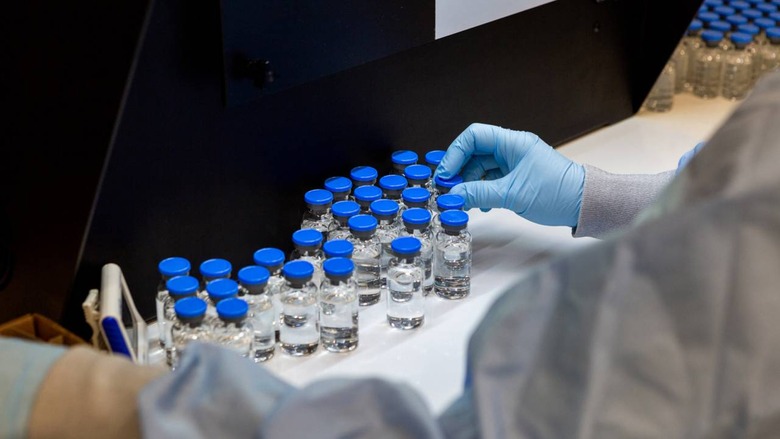Coronavirus Drug Remdesivir Gets FDA Emergency Use Authorization
Experimental drug remdesivir has been given authorization by the FDA for COVID-19 treatment in the US, following promising early results in Phase 3 trials last month. The drug, initially developed by Gilead for ebola and other infections, can now be prescribed in hospitals to shorten the recovery time from coronavirus, though the FDA makes no claims about the efficacy of the drug.
It's part of the US Food and Drug Administration's Emergency Use Authorization, or EUA, program. That has been implemented to fast-track certain medications, treatments, or devices to healthcare, before the usual battery of tests and approvals that would typically apply, in the urgency to find efficacious ways of handling the COVID-19 pandemic.

In the absence of an approved medication to treat coronavirus cases, the FDA explains, it has authorized remdesivir for emergency use. Gilead's drug will be administered intravenously, once per day, for up to 10 days. In turn, it "may help decrease the amount of the coronavirus in your body," the FDA suggests. "This may help you to get better faster."
Only those considered to be "hospitalized with severe disease" will be considered for treatment with remdesivir. That means a patient demonstrating low blood oxygen levels or needing oxygen therapy, or requiring more intensive breathing support, such as a mechanical ventilator.
Remdesivir is still in trials, but promising
Though Gilead has been working on the drug for several years now, remdesivir has only recently been proposed as a COVID-19 treatment. Several trials of the drug began earlier in the year, across more than a hundred locations around the world. Patients with coronavirus in the studies were given remdesivir for either 5- or 10-day periods, and their progress toward recovery measured.
The initial results, published earlier this week, seemed promising. More than half of the patients, regardless of which groups they were in, went on to be discharged from hospital by day 14. Time to clinical improvement – defined as "an improvement of two or more points from baseline on a predefined seven-point scale, ranging from hospital discharge to increasing levels of oxygen support to death" – for 50-percent of patients was 10 days in the 5-day group, and 11 days in the 10-day group.

Early treatment was another factor for success. 62-percent of those who received the drug within 10 days of the first onset of COVID-19 symptoms were discharged from hospital by day 14. In contrast, only 49-percent of patients who were first treated with remdesivir more than 10 days after symptom onset were discharged by day 14.
Nonetheless it isn't a home run. Trials are still ongoing, including of coronavirus patients who are in advanced states of infection, as well as on ventilators. Other tests of Gilead's drug have found less promising results, too, suggesting that while remdesivir may help in some cases, it's not the magic bullet for COVID-19 treatment.
Experimental and unproven, remdesivir isn't without risks
As you might expect from a pre-approval drug, not everything will be smooth sailing. Side effects can include infusion-related reactions like low blood pressure, nausea and vomiting, sweating, and shivering, the FDA warns. It can also lead to an increasing in liver enzymes, which could indicate damage to the liver is being sustained.
"Today's action is an important step in our efforts to collaborate with innovators and researchers to provide sick patients timely access to new therapies where appropriate," FDA Commissioner Stephen M. Hahn, M.D. said of the decision to grant the EUA, "while at the same time supporting research to further evaluate whether they are safe and effective."
"Not a lot of people have taken remdesivir," the FDA highlights. "Serious and unexpected side effects may happen. The side effects of getting any medicine by vein may include brief pain, bleeding, bruising of the skin, soreness, swelling, and possible infection at the injection site."
According to the latest CDC figures, released on May 1 2020, the total number of coronavirus cases in the US rose by almost 31,000 since yesterday, to 1,062,446 cases. There have been 62,406 deaths blamed on the virus in the US.
